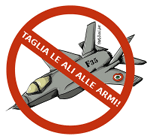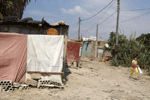Social Watch E-Newsletter - Issue 273 - September 9, 2016
Published on Mon, 2016-09-12 10:24
 |
| Issue 273 - September 9, 2016 |
|
|
Social Watch reports
Spotlight report on the 2030 Agenda
|
|
|
| |
|
| |
Italy: Change of direction needed to implement the 2030 Agenda
|
| |
|
| |
 |
Due to the lasting impact of the international financial crisis and resulting increase in poverty and insecurity, and especially due to the Government’s extensive austerity policies, Italy faces challenges in many of the areas addressed by the 2030 Agenda for Sustainable Development goal.
Moreover, the political context is critical, the result of three changes of Government without elections, in which the executive power has taken decisive initiatives for reform in many fields, including constitutional reforms, resulting in a progressive worsening of the gap between the political action of the "palace" and the daily exercise of citizen democratic participation.
In a very weak and recessive macroeconomic situation, with an excessively high and growing public debt/GNP ratio, which in 2015 reached a peak of 133.1 percent and the “deterioration of competitiveness and of productivity” according to European Commission data. Italy also continues to have among the highest rates of corruption.
An area that could revive Italy's role in implementing the 2030 Agenda is that of international cooperation, thanks to the recent new law and to a small sign of reverse from previous year declines, with an official development assistance reaching 0.22 percent of GDP in 2015, moving the country from last to fourth to last among European countries. We still need to see how the funds will be used and how civil society will be involved in developing countries. And above all, the effort could be nullified if the policies on arms exports continue. These rose 300 percent in 2015, reaching a record of over 8.2 billion euros in sales since WWII – even to countries at war, despite the national laws explicitly forbid it. Read more
|
| |
|
| |
|
| |
Lebanon: Structural challenges and obstacles to the implementation of the 2030 Agenda
|
| |
|
| |

Photo: UNHCR/S. Malkawi
|
Several challenges hinder the implementation of the 2030 Agenda on Sustainable Development in Lebanon. During the UN Conference on Sustainable Development in September 2014 Lebanese President Tammam Salam identified the humanitarian issues caused by the Syrian refugee crisis as one of the greatest challenges to development. It is indeed a significant constraint; yet, one should note that Lebanon was facing a political and socio-economic crisis reflected by a high rate of unemployment and marginalized people, even before the Syrian crisis and the flood of refugees. Therefore, it is worth highlighting that the Syrian war shed light on the structural and systemic problems of Lebanon and aggravated them.
To date, Lebanon does not have a national strategy for sustainable development nor a national economic plan nor a poverty reduction strategy. According to the 2014 International Parliamentary Union Secretary General’s annual report: “the Lebanese Parliament reported that the Sustainable Development Initiative was in the agenda of the Public Work Committee between 2009-2010 period. The current political instabilities, however, forced the Parliament to shift its priorities.” The same report indicates that the Parliament has not been informed of the Sustainable Development Goals (SDGs) and has not taken any steps to discuss them. Read more
|
| |
|
| |
|
| |
Social Watch coalitions around the world are contributing their assessments and reports to the global Social Watch report 2016, under the overall theme Goals for 2030... and obstacles to getting there. The Social Watch network thus joins the current global discussions around a set of Sustainable Development Goals (SDGs) and on a new development framework and the need for civil society monitoring.
The Social Watch national platforms are independent coalitions of civil society organizations struggling for social and gender justice in their own countries. The Social Watch network has been publishing since 1996 yearly reports on how governments implement their international commitments to eradicate poverty and achieve equality between women and men.
|
| |
|
| |
|
| |
 |
Inequality's unrelenting rise has been the subject of growing attention that has come, in the last few years, from unexpected quarters. As a recent example, an article appeared on the IMF's Finance & Development journal, “Neoliberalism: Oversold?” put the spotlight on the negative effects that inequality has on the level and sustainability of growth. The article generated not only wide press coverage, but also a number of responses. Almost in sync with the article, the IMF felt the need to publish an interview with its Chief Economist, Mr. Maurice Obstfeld, clarifying that the policy rethink at the IMF did not represent revolution, but evolution. Needless to say, to many analysts who had closely followed IMF policies for years, the clarification was entirely unnecessary. In fact, critics were quick to comment that the article was only a mild departure from IMF doctrine, not reflected in actual IMF programs, and even reasserted points that continue to be the focus of contention such as the positive growth effects of trade liberalization, privatization and foreign direct investment. Nonetheless the article, reflected wider concern with inequality at an institution that until not long ago considered it an afterthought. Read more
|
|
| |
|
| |
|
| |
The International Council for Adult Education (ICAE) announces the launch of the call for applications of the ninth edition of the ICAE Academy of Lifelong Learning Advocacy (IALLA) that will be held in Ouagadougou, Burkina Faso, from November 10 to 17, 2016.
The ICAE Academy of Lifelong Learning Advocacy is the main international training programme that the International Council for Adult Education (ICAE) has created with the aim of broadening the vision on adult learning and helping new leaders acquire advocacy skills through a participatory methodology that includes an interlinkage analysis within and beyond the field of adult learning and education, and promoting networking as an effective mechanism for collective learning. Since its creation in 2004 they have had a growing number of applicants from all regions and at this moment there are 222 IALLA graduates from 74 countries of all regions. Read more
|
|
| |
|
|
|
| |
|
SOCIAL WATCH IS AN INTERNATIONAL NGO WATCHDOG NETWORK MONITORING POVERTY ERADICATION AND GENDER EQUALITY Social Watch >>
Social Watch E-Newsletter For comments, sugestions, collaborations contact us at: socwatch@socialwatch.orgTo stop receiving this newsletter send a message with the subject "unsubscribe" to: socwatch@socialwatch.org |
|
|
|
SUSCRIBE TO OUR NEWSLETTER
Submit
|
